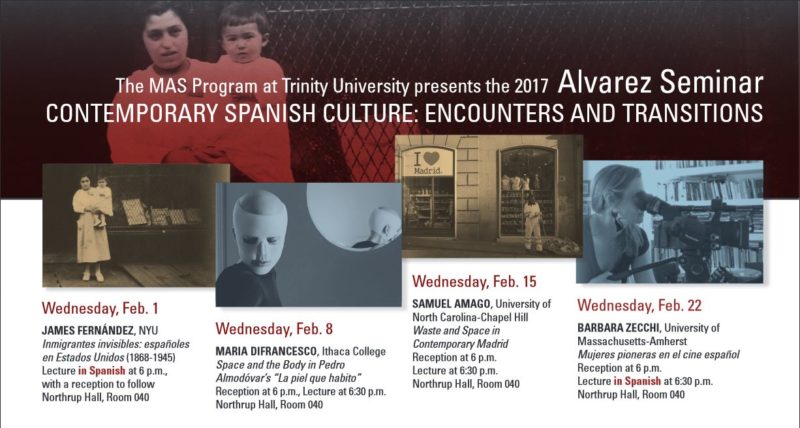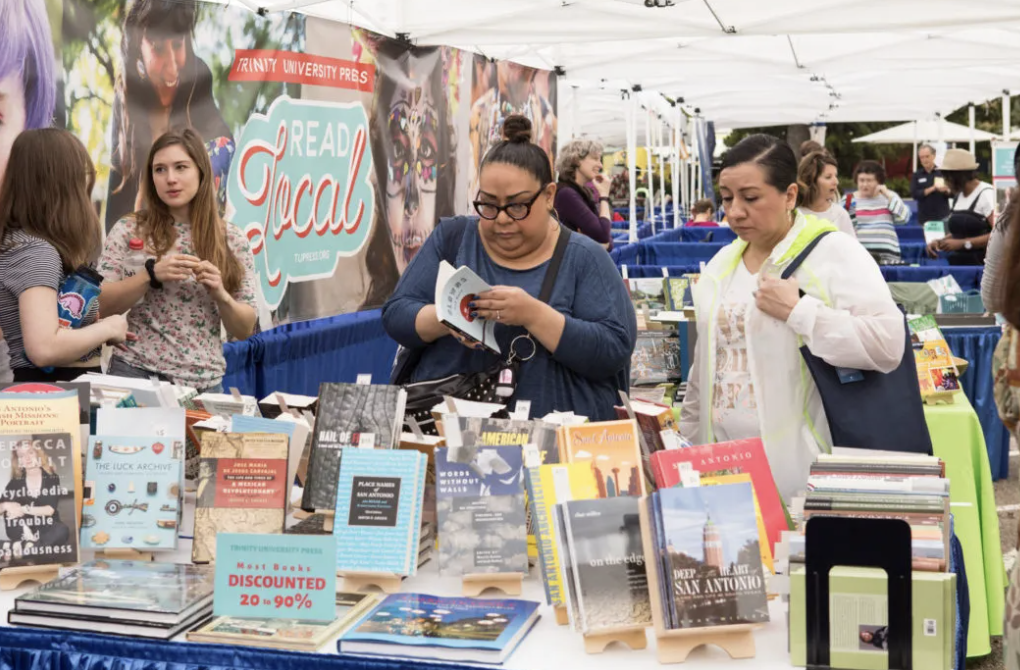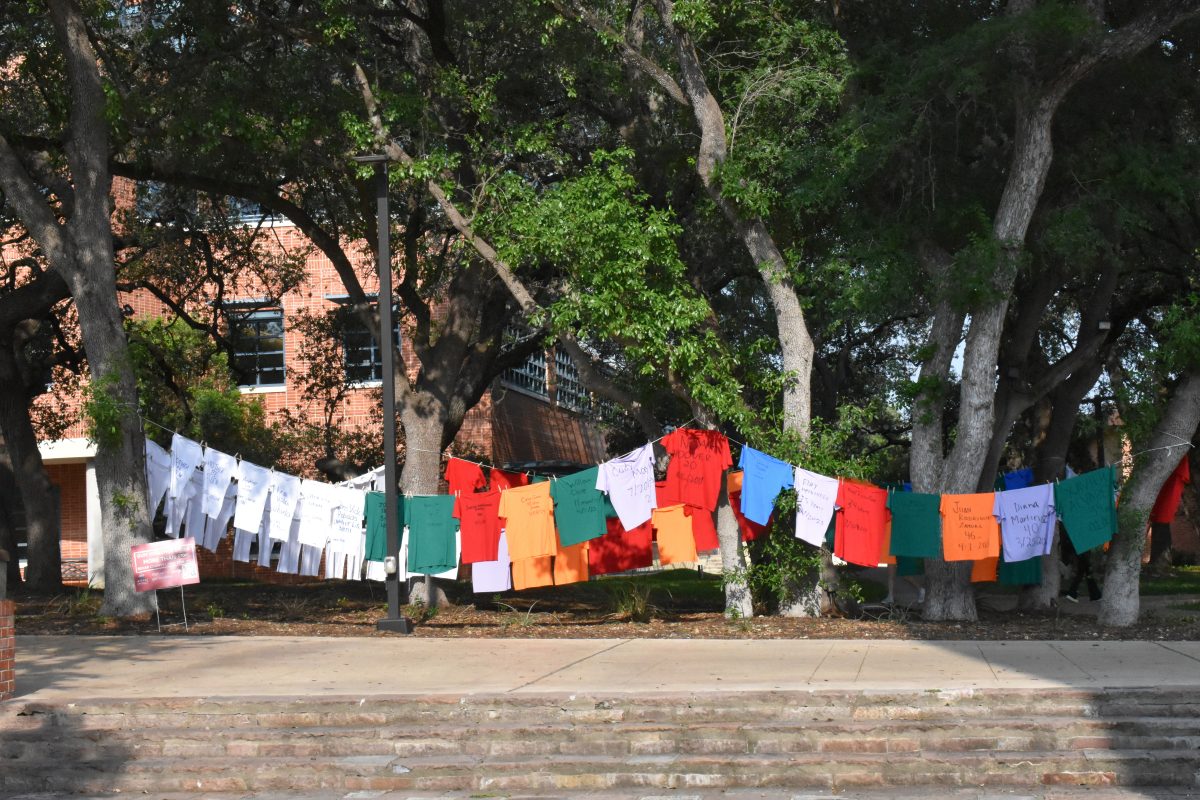James Fernàndez, professor of Spanish and Portuguese at New York University, delivered a lecture Wednesday titled “Invisible Immigrants: Spanish Immigrants in the United States.” The talk was the first of four that together compose the 2017 Alvarez Seminar, an annual series of lectures hosted by the Mexico, the Americas and Spain (MAS) program.
Fernàndez offers a summary of his lecture, which was based on his recent book co-authored with Spanish documentarian Luis Argeo titled “Invisible Immigrants: Spaniards in the U.S. (1868-1945).”
“For the last 10 years I’ve been studying an unknown episode in U.S. immigration history: the immigration of people from Spain into the U.S. by the tens of thousands,” Fernàndez said. “Significant numbers of Spaniards came to the U.S. in the last decades of the 19th century and the first decades of the 20th, and they settled all over the country — from Maine to California, in these tight-knit ethnic conflicts. Nobody has really ever studied them.”
Fernàndez explains some surprising aspects of Spanish immigration to the United States that sets it apart from the immigration of Italians, Irish and others during this time period.
“[The Spaniards] arrived to the U.S. at the same time that much larger numbers of Spanish speakers from other countries were arriving, so that conditioned their experience,” Fernàndez said. “One distinctive thing about the Spaniards in contrast with other Europeans is that they were mingling and, in some cases, competing with or collaborating with Latinos — Spanish speakers from other countries.”
Fernàndez suggests that the tale of Spanish migration to the U.S. can teach us about contemporary political developments.
“There was a lot of xenophobia directed against them. There were campaigns to ban the immigration of Spaniards,” Fernàndez said. “Legislation between 1924 and 1934 basically shut down entrance of Spaniards to the U.S. I begin [my lecture] with a quotation from a U.S. Congressman from 1920, where he says that Spain is a seething mass of anarchy and the country is dumping its worst citizens on us. When you hear that today in 2017, it really resonates, and when you realize that he’s talking about your grandfather, it resonates even more.”
This year’s Alvarez Seminar, titled “Contemporary Spanish Culture: Encounters and Transitions,” was organized by Debra Ochoa, associate professor of Spanish in the department of modern languages and literatures. She reached out to several prominent scholars studying Spanish culture and invited them to present for the seminar series.
“I knew I wanted to focus on contemporary Spain, and I knew that I’d be teaching a special topics course that would compliment that [topic],” Ochoa said. “I thought, ‘Well, these are the people I would really like to invite to Trinity,’ and they all accepted! I was very happy.”
Ochoa invites all readers to attend the events and notes that the second and third lectures will be in English.
This is the seventh year of the Alvarez Seminar; past seminar topics have concerned Mexican art, Caribbean culture and more. The series is funded by donations by Carlos and Malú Alvarez, who also provide funding for cultural events and scholarships for internships and studying abroad.
Rosana Blanco-Cano, also an associate professor of Spanish in the modern languages and literatures department, is the director of the MAS program. Blanco-Cano explains why the MAS program is excited to sponsor the Alvarez Seminar.
“The MAS program has a very broad mission: to bring MAS to Trinity, and to take students to the MAS context,” Blanco-Cano said. “The Alvarez Seminar is really an opportunity for us to have this long, serious, profound conversation about certain issues.”
Blanco-Cano offers some insight on the importance of this year’s seminar topic.
“We will be seeing lectures and events in which the very stereotypical notions of Spain are under revision, and I think that’s very powerful,” Blanco-Cano said. “There is a lot of discussion of Spanish immigration into the Americas — Mexico, Argentina — that’s historical. But not into the U.S. Where are they? What happens to them? What are they doing? It really enriches our understanding of who we are in the U.S., but also how Spain has historically been a country of people who need to migrate.”
Blanco-Cano also expresses her enthusiasm for the upcoming Alvarez lectures, including a feminist perspective on renowned Spanish filmmaker Pedro Almodóvar, a reflection on the precarity of Spain through the national development process, and a speech on pioneering female filmmakers in Spain.







